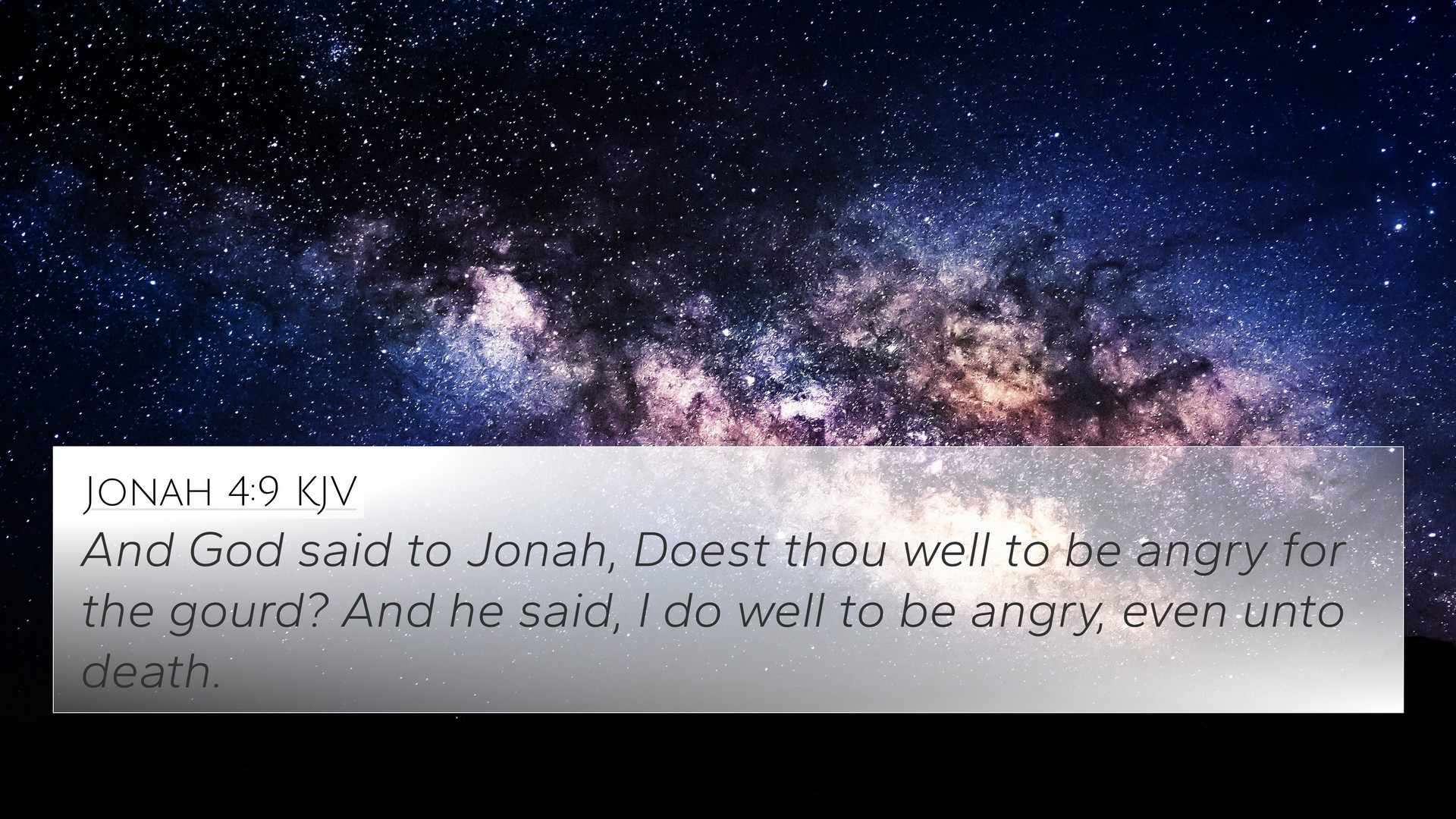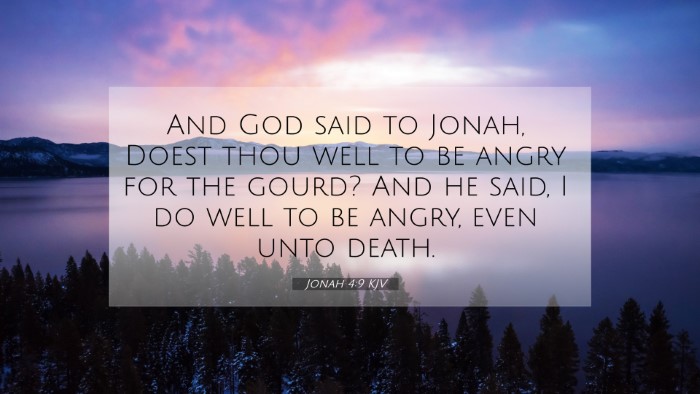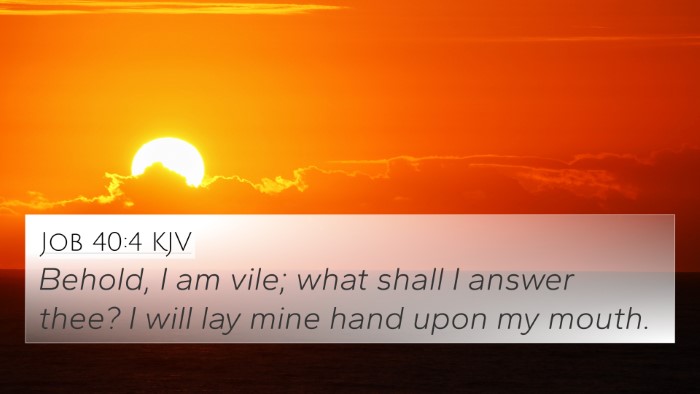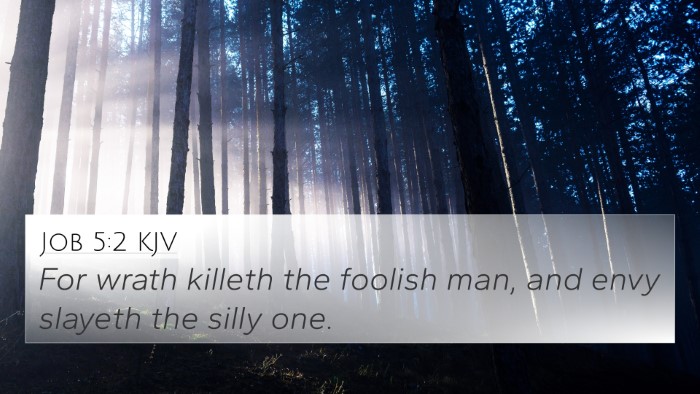Old Testament
Genesis Exodus Leviticus Numbers Deuteronomy Joshua Judges Ruth 1 Samuel 2 Samuel 1 Kings 2 Kings 1 Chronicles 2 Chronicles Ezra Nehemiah Esther Job Psalms Proverbs Ecclesiastes Song of Solomon Isaiah Jeremiah Lamentations Ezekiel Daniel Hosea Joel Amos Obadiah Jonah Micah Nahum Habakkuk Zephaniah Haggai Zechariah MalachiJonah 4:9 Similar Verses
Jonah 4:9 Cross References
And God said to Jonah, Doest thou well to be angry for the gourd? And he said, I do well to be angry, even unto death.
Uncover the Rich Themes and Topics of This Bible Verse
Listed below are the Bible themes associated with Jonah 4:9. We invite you to explore each theme to gain deeper insights into the Scriptures.
Jonah 4:9 Cross Reference Verses
This section features a detailed cross-reference designed to enrich your understanding of the Scriptures. Below, you will find carefully selected verses that echo the themes and teachings related to Jonah 4:9 KJV. Click on any image to explore detailed analyses of related Bible verses and uncover deeper theological insights.
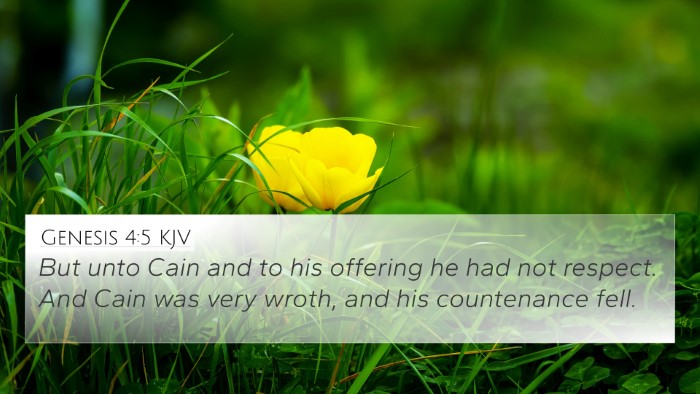
Genesis 4:5 (KJV) »
But unto Cain and to his offering he had not respect. And Cain was very wroth, and his countenance fell.
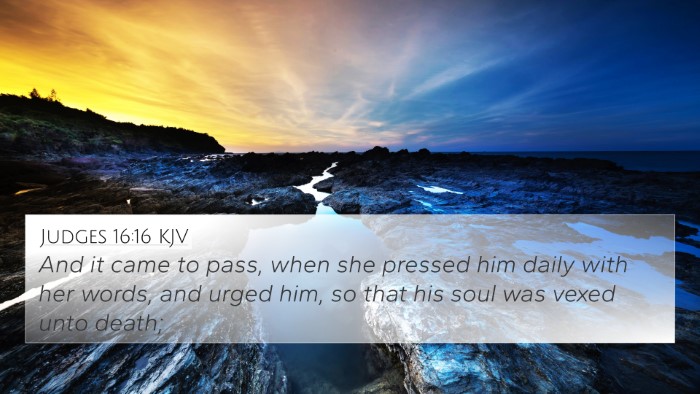
Judges 16:16 (KJV) »
And it came to pass, when she pressed him daily with her words, and urged him, so that his soul was vexed unto death;
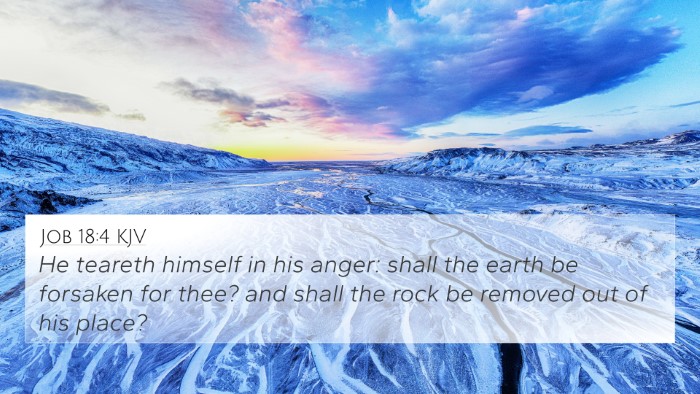
Job 18:4 (KJV) »
He teareth himself in his anger: shall the earth be forsaken for thee? and shall the rock be removed out of his place?
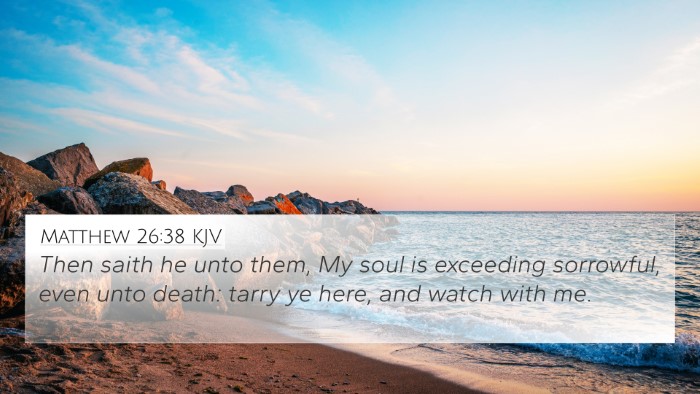
Matthew 26:38 (KJV) »
Then saith he unto them, My soul is exceeding sorrowful, even unto death: tarry ye here, and watch with me.
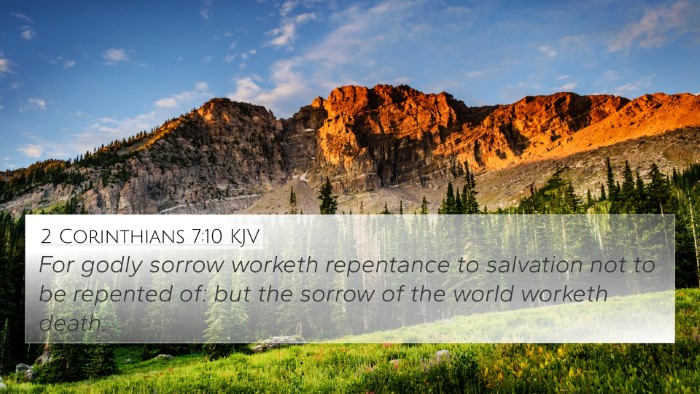
2 Corinthians 7:10 (KJV) »
For godly sorrow worketh repentance to salvation not to be repented of: but the sorrow of the world worketh death.
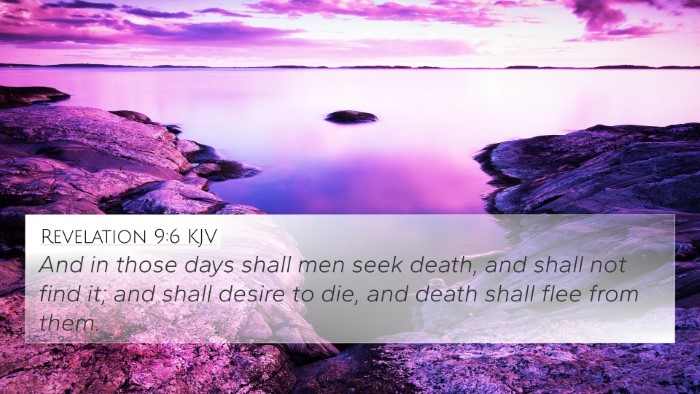
Revelation 9:6 (KJV) »
And in those days shall men seek death, and shall not find it; and shall desire to die, and death shall flee from them.
Jonah 4:9 Verse Analysis and Similar Verses
Understanding Jonah 4:9
Verse: Jonah 4:9 - "And God said to Jonah, 'Is it right for you to be angry about the plant?' And he said, 'It is right for me to be angry, even to death!'"
Contextual Background
The Book of Jonah presents the story of a prophet who initially resists God's command to preach repentance to Nineveh. After reluctantly obeying, Jonah witnesses the city’s repentance and God’s mercy, leading to his anger. Jonah 4:9 emphasizes a pivotal moment where God questions Jonah’s feelings towards the vine that provided him shade.
Verse Analysis
This verse highlights Jonah's emotional conflict and serves as a deeper exploration of human anger and God’s compassion.
- Emotional Response: Jonah exhibits intense feelings of anger, paralleling with his earlier disobedience. His reaction signifies a struggle to align personal feelings with divine intentions.
- Divine Questioning: God's inquiry promotes self-reflection, challenging Jonah to examine the validity of his emotions. This dialogue emphasizes God's desire for understanding rather than mere obedience.
- Symbolism of the Plant: The plant symbolizes transient comfort; Jonah’s attachment to it illustrates the human tendency to favor personal comfort over greater concerns of compassion and mercy for others.
Theological Implications
Jonah 4:9 presents significant questions about divine mercy versus human anger:
- God's Compassion: This encounter reveals God’s loving patience, contrasting Jonah’s petty anger with His willingness to forgive.
- Human Perspective: Jonah's fixation on personal grievances showcases a broader theme in Scripture regarding the nature of human emotion, often clouded by self-interest.
Bible Cross-References
To fully grasp the message of Jonah 4:9, several related scriptures provide valuable insights:
- Proverbs 14:29: "He who is slow to wrath has great understanding, but he who is impulsive exalts folly." - This verse illustrates the contrast between righteous patience and hasty anger.
- James 1:20: "For the anger of man does not achieve the righteousness of God." - This verse emphasizes the futility of human anger in achieving divine outcomes.
- Matthew 5:44: "But I say to you, love your enemies and pray for those who persecute you," - Encouraging love instead of anger aligns with God’s disposition versus Jonah's reaction.
- Romans 12:19: "Beloved, do not avenge yourselves, but rather give place to wrath; for it is written, 'Vengeance is Mine, I will repay,' says the Lord." - This underscores the call to trust God with our grievances rather than act out in anger.
- Psalm 103:8: "The Lord is merciful and gracious, slow to anger, and abounding in steadfast love." - This highlights God's nature of mercy, contrasting with Jonah’s exasperation.
- Luke 15:20-24: The Parable of the Prodigal Son illustrates divine forgiveness that opposes human moral judgment like Jonah's.
- 1 John 3:20: "For if our heart condemns us, God is greater than our heart, and knows all things." - This reassures that God’s understanding surpasses human emotions and judgments.
Conclusion
In Jonah 4:9, we find a crucial lesson on the nature of anger, compassion, and the transformative power of God’s grace. By cross-referencing related Biblical texts, we enrich our understanding of Jonah's emotional struggle and God's eternal mercy. This verse and its related connections serve as an important reminder of the conflict between personal feelings and divine will.
